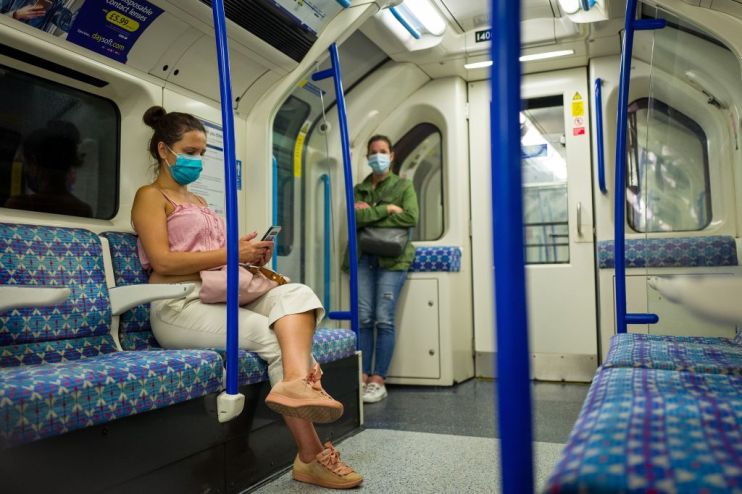Face coverings mandatory on TfL network from 15 June

It will be mandatory for commuters to wear face coverings on all English public transport networks from 15 June, including on Transport for London (TfL).
Transport secretary Grant Shapps made the announcement at today’s press briefing, adding that non-compliance would lead to a refusal of travel and fines.
Shapps said there would be exemptions for very young children, disabled people and those with breathing difficulties.
The transport secretary urged people to wear face coverings, which can be made at home, and not surgical masks.
“The evidence suggests that wearing face coverings offers some, albeit limited, protection against the spread of the virus,” he said.
“As passenger numbers increase, we need to ensure every precaution is taken on buses, trains, aircrafts and on ferries.”
Before the Open newsletter: Start your day with the City View podcast and key market data
The transport secretary said the new rules would be monitored by public transport staff and, if need be, the British Transport Police.
Mayor of London Sadiq Khan welcomed the announcement, saying he had lobbied the government for some time to make the change mandatory.
He said: “I encourage anyone travelling on public transport, or anywhere you can’t keep a safe two-metre distance, to wear a face covering, but from Monday 15 June, everyone must wear a covering over their nose and mouth for the entirety of any journeys made using the public transport network.
“This will be mandatory and will help everyone be safer.”
The news comes as non-essential retail businesses prepare to open on 15 June.
The further easing of the lockdown comes as a further 176 people died of Covid-19 yesterday in the UK, bringing the total to 39,904.
The National Union of Rail, Maritime and Transport Workers (RMT) welcomed the news of face coverings being mandatory on public transport, but said more needed to be done to stop the spread of coronavirus.
RMT general secretary Mick Cash said: “By themselves face masks are nowhere near enough to protect passengers’ and workers’ safety on public transport.
“They need to be combined with preventing non-essential travel and compulsory enforcement of two meter social distancing.
“But most importantly the government needs to put the brakes on easing lockdown restrictions before there are further catastrophic consequences to peoples lives and livelihoods.”